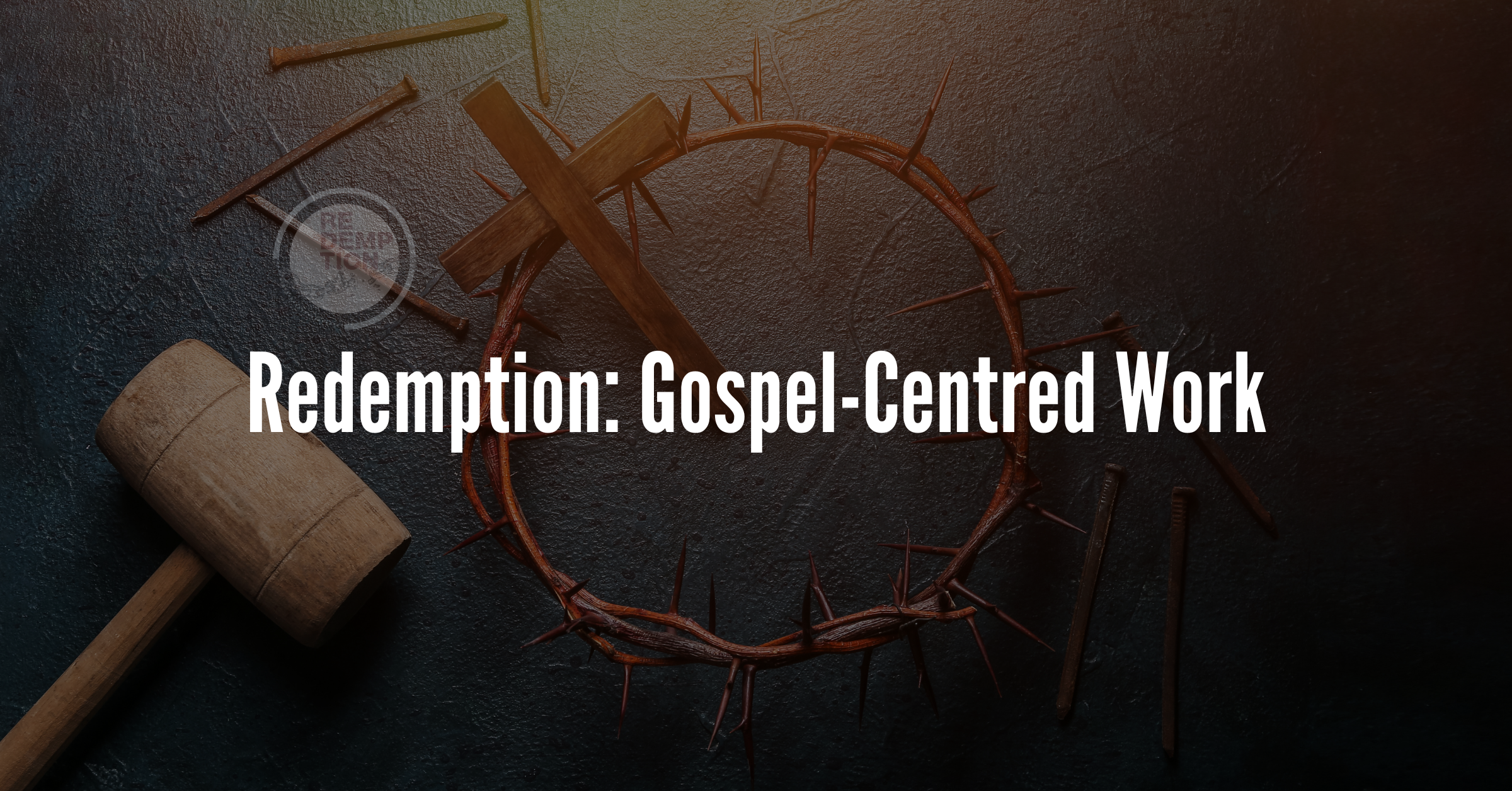
BLOG · GOSPEL CITY NETWORK
Each generation seems to bring a unique outlook to work. For Baby Boomers, work was about achievement and stability—a way to build a better life and ensure financial security. Millennials, shaped by ideals of purpose and meaning, sought careers that aligned with their values and passions. Now, Gen Z enters the workforce with a focus on balance, self-expression, and mental well-being, often prioritizing personal happiness over traditional notions of success.
While each perspective highlights something valuable, all too often, work becomes self-focused. Whether it’s the drive for stability, purpose, or balance, we can easily lose sight of God’s design for work. At the Work Matters Conference, Pastor Jason Dees invited us to consider a different perspective: a gospel-centred vision that redeems work and reorients it toward God’s glory and purposes.
God-Glorifying Work
“When we look at Jesus, we see God-glorifying work in all that He did,” Pastor Jason stated. Jesus’ life on earth was marked by diligent, purposeful labour. Whether healing the sick, feeding the hungry, or teaching His disciples, Jesus demonstrated excellence in every task. His work wasn’t self-serving but entirely focused on accomplishing the will of His Father. In John 4:34, Jesus declared, “My food is to do the will of Him who sent me and to accomplish His work.”
This example challenges us to evaluate our motivations for work. Are we diligent in tasks that bring personal gain but neglectful in areas that serve others or glorify God? Pastor Jason confessed that it’s easy to prioritize work that leads to recognition or reward while dismissing responsibilities that seem less rewarding, such as serving our families or volunteering in our communities. Yet, true gospel-centered work follows Jesus’ example—pursuing excellence even in tasks that go unnoticed by others.
Dorothy Sayers captured this well in her essay Why Work, stating, “The only Christian work is good work well done.” Pastor Jason echoed this sentiment, reminding us that all work—whether in the office, home, or church—has inherent value when done unto the Lord. Our diligence and integrity in the workplace reflect God’s character and bring order out of chaos, just as He did in creation.
Hard Work and Worshipful Rest
Another key lesson from Jesus’ life is His pattern of hard work balanced with worshipful rest. Pastor Jason highlighted Luke 7:21, where John the Baptist’s disciples find Jesus actively healing the sick, casting out demons, and restoring sight to the blind. This moment captures the diligence and focus that marked Jesus’ ministry. “Jesus didn’t shy away from hard, chaotic, or difficult work,” Pastor Jason noted. “He leaned into it with purpose and grit.”
However, Jesus also demonstrated the importance of rest. Throughout the Gospels, we see Him withdrawing from the crowds to spend time in prayer and communion with His Father. In Mark 6:31, He invites His disciples to do the same, saying, “Come with me by yourselves to a quiet place and get some rest.” This rhythm of work and rest wasn’t random; it reflected trust in God’s provision. Jesus worked diligently but rested worshipfully, reminding us that rest is not about idleness but about reorienting our hearts toward God.
For many of us, the challenge is finding this balance. Our culture often glorifies busyness, leaving little room for true rest. Pastor Jason emphasized that worshipful rest is not merely ceasing from work but intentionally seeking God’s presence. “We were created to be dependent people,” he said. “True rest is found in dependence on God, not in distractions or self-gratification.”
Do We Really Believe?
The ultimate question, Pastor Jason argued, is whether we truly trust Jesus as our source of life and identity. In Luke 7, John the Baptist, imprisoned and discouraged, sends his disciples to ask Jesus, “Are you the one who is to come, or shall we look for another?” Jesus responds by pointing to His works—healing the blind, raising the dead, and preaching good news to the poor. These acts confirm that He is the promised Messiah.
For us, this question remains: do we believe that Jesus is the one who fulfills our deepest needs? Pastor Jason explained that when we trust Jesus fully, we can approach work with freedom. “If Jesus is your life,” he said, “you can work hard, knowing your identity isn’t tied to your performance. You can rest, knowing you don’t have to strive endlessly for approval.”
Trusting Jesus liberates us from the idolatry of work and the restlessness of idleness. It allows us to work diligently, with excellence and purpose, while also embracing worshipful rest. This balance reflects the gospel’s transformative power—not just in our personal lives but in how we engage with the world through our labour.
Redemption shapes every aspect of our lives, including how we work. In Jesus, we see the perfect example of God-glorifying work and worshipful rest, showing us that work is not about self-fulfillment but about glorifying God and serving others. As Pastor Jason concluded, “The gospel gives us the grit we need for diligent, God-honoring work and the rest we need for our weary souls.”
This article is based on “Redemption: Gospel-Centred Work,” a keynote delivered by Pastor Jason Dees at GCN’s Work Matters Conference in September 2024.
